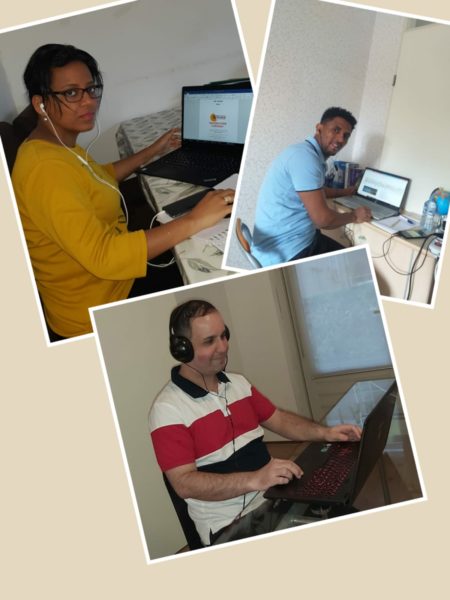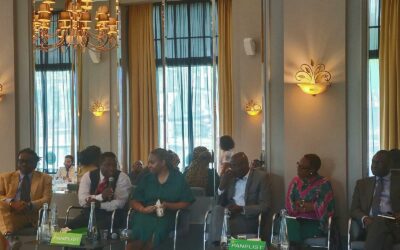A Coronavirus Helpdesk to inform Arabic and Tigrinya speaking newcomers in Holland
Owing to the major role played by African diaspora organisations and individuals in the African continent’s development, ADEPT, the Africa-Europe Diaspora Development Platform, is keen to highlight initiatives of the African diaspora based in the EU but also in Switzerland, the United Kingdom and Norway. ADEPT works towards achieving a main goal: improving and strengthening the capacity and impact of African diaspora organizations involved in Africa’s development activities. This article centres on Helpdesk Newcomers, an organization based in the Netherlands.
The UN Refugee Agency (UNHCR) declared the Netherlands received more than 100,000 status holders. From 2016 to 2018, most of the asylum requests are from Syrian and Eritrean refugees, and these newcomers were not able to properly understand originated information in Dutch. Created on the 26th of March 2020, the initiative “Corona Helpdesk for Newcomers and Status Holders” counts 40 Arabic and Tigrinya speaking volunteers, who are able to answer questions about the pandemic from newcomers on various topics related to the corona pandemic, and to provide further information. Additionally, they make recommendations to professionals and policy makers.
Rational Information concerning the corona pandemic and associated measures are mainly communicated in Dutch, while many newcomers have insufficient command of the Dutch language to follow the latest news and to understand and comply with the measures. As a result, feelings of uncertainty and panic are prevalent among this group. In response, a collective of organizations collectively known as the Corona Actiecomité Statushouders (CAS), has set up a Helpdesk for status holders. The Helpdesk answers questions and provides information about the corona pandemic to newcomers in their native languages: Arabic and Tigrinya.
During the COVID-19 health crisis, the Corona Helpdesk aimed to provide newcomers with correct information, based on guidelines of the National Institute for Public Health and the Environment (RIVM). Effectively informing this target group has diminished the panic and unrest that is often caused by a lack of clear information about the virus. Furthermore, it has also contributed in reducing the health risks of status holders and their immediate environment.
A guide created by the Helpdesk, is intended to give insight into newcomers’ lives and experiences during the COVID-19 pandemic for professionals and organizations in the social care and health domains.


Corona Helpdesk for Newcomers & Status Holders receives people on weekdays from 2.00 pm to 4.00 pm. Volunteers are helped by a back office composed by professionals from social care and health domains. These specialists are in charge of complex questions, mediation and in-depth guidance. The staff can use an online database provided by RIVM, GGD and Pharos, to learn more about the most recent information on corona, before they answer the newcomers.
Every week, external specialists hold webinars and master classes from various fields: the volunteers can watch these supports to update their information about the pandemic. The information can be provided by phone, but the volunteers also circulate videos and texts in Arabic and Tigrinya through various social media channels.
Corona Helpdesk for Newcomers & Status trains volunteers before sending them as community informers, conducts qualitative research, advises social care and health professionals. All these dispositions contribute reducing the health risks of status holders, of their family and their immediate environment.





